The Fascinating World of Pet Mice: Tiny, Active, and Full of Personality

Mice make for surprisingly delightful pets. These tiny creatures are often misunderstood, but once you get to know them, you’ll realize how intelligent, social, and fun they are to have around. In this post, we’ll dive deep into the world of pet mice—what they’re like, their habits, and how to take care of them properly.
What Do Pet Mice Do All Day?
Mice are highly active creatures, especially at night—these little guys are nocturnal. While you’re fast asleep, your pet mouse will be running on its wheel, exploring its cage, climbing, or even foraging for food. During the day, they tend to nap in their nests or cozy up in dark corners of their cages. Their activity level is impressive for such small animals, so be prepared to see them zooming around when the sun sets.
Mice are also incredibly curious—they love to investigate new things in their environment. If you introduce a new toy or hiding spot in their cage, they will spend time figuring it out. This sense of adventure makes them fun to watch.
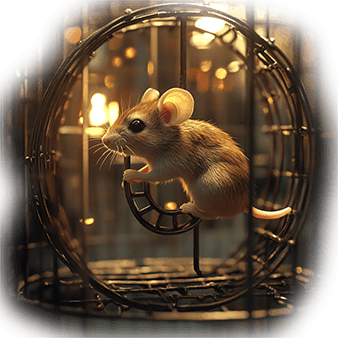
Feeding Habits—What Should You Feed a Pet Mouse?
Mice need a well-balanced diet to stay healthy and active. Commercial mouse food is available in most pet stores and typically contains a mix of grains, seeds, and nuts. This should make up the bulk of their diet, but you can supplement their meals with small amounts of fresh fruits and vegetables. Good choices include apples (without seeds), carrots, and leafy greens.
Mice enjoy variety, but there are certain foods they should avoid—citrus fruits, chocolate, and raw beans, for example, can be harmful to them. They also have a habit of hoarding food, which means you’ll occasionally find little piles of uneaten treats hidden in their bedding. Be sure to clean up these stashes regularly to avoid mold and pests.
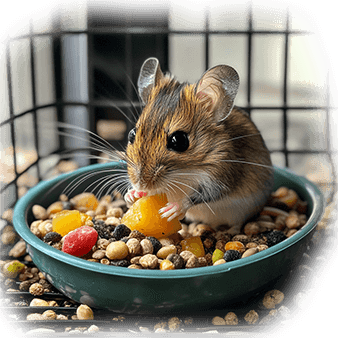
Sleeping Habits—When Do Mice Rest?
Since mice are nocturnal, their sleep schedule is opposite to ours. They will be most active during twilight hours and throughout the night, catching up on their sleep during the day. Don’t be surprised if you barely see them moving during daylight—they’re likely tucked away, snoozing in their little nests.
Mice sleep in short bursts throughout the day, often waking up briefly to eat or drink before settling back into sleep. It’s important to provide them with a quiet and dark space where they feel safe and secure. A mouse that’s stressed or uncomfortable will have trouble resting, so make sure they have soft bedding materials like shredded paper or wood shavings to build their nests.
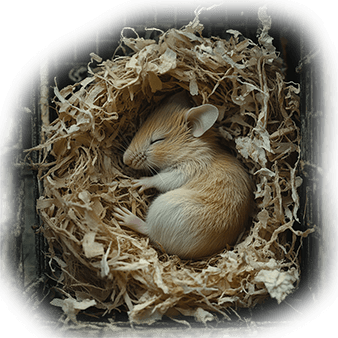
Social Creatures—Mice and Their Relationship with Humans
Mice are social animals—they enjoy the company of their fellow mice and, with time, can form a bond with their human owners. If you plan on keeping pet mice, it’s a good idea to get at least two (same sex, to avoid breeding) so they can keep each other company.
As far as their relationship with humans goes, mice can be a bit shy at first. However, with patience and regular handling, they will become more comfortable and may even enjoy sitting in your hand or climbing up your arm. Make sure to approach them slowly and calmly to avoid startling them—trust is key in building a good relationship with your pet mice.
Mice communicate in subtle ways—sometimes through high-pitched squeaks that are barely audible to humans and other times through scent marking. Watch for the way they interact with you and each other to understand their moods and preferences better.
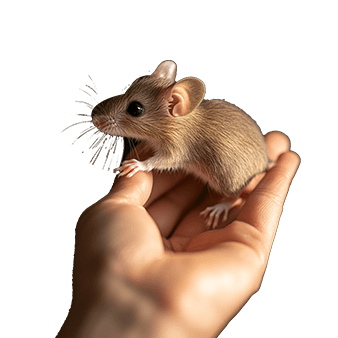
Fun Fact—Mice Are Amazing Climbers!
One of the most fascinating things about mice is their climbing ability. These agile animals love to explore every inch of their environment—whether that’s scaling the walls of their cage or navigating a complex system of tunnels and ramps. You can enhance their habitat by adding plenty of vertical space and climbing structures like ladders, branches, or ropes. They’ll appreciate the chance to use their natural athleticism, and it’s great enrichment for their mental and physical health.
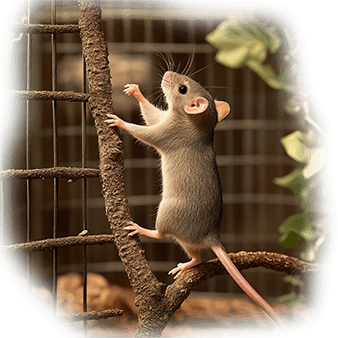
What Do Mice Like?
Mice love to chew—give them chew toys or small wooden blocks to gnaw on, which helps wear down their teeth (which grow continuously). They also love digging and burrowing. Providing them with different textures in their bedding material, like shredded paper and cardboard tubes, will keep them entertained for hours.
Another thing mice really enjoy is exploring new spaces. Whether it’s rearranging their cage furniture or letting them roam in a safe, enclosed play area outside their cage, exploration is key to keeping a mouse happy. Always supervise them when outside the cage, though—they can slip through tiny gaps and disappear faster than you’d think!
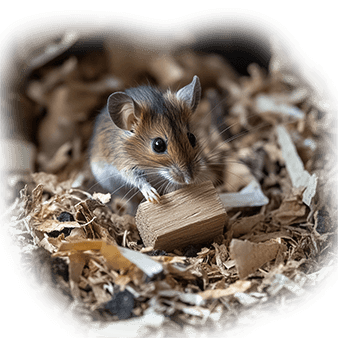
Bonding Time—Interacting with Your Mouse
Mice, while small, can be affectionate once they trust you. They won’t behave like a cat or dog, but they can recognize you, enjoy your scent, and become more curious when you’re near. Try offering them small treats (like sunflower seeds) from your hand to encourage interaction.
Don’t worry if your mouse seems a bit skittish at first—this is completely normal. Mice are prey animals, so their natural instinct is to be wary of anything larger than them. However, once they feel safe, you’ll find that they’re much more willing to come out and interact with you.
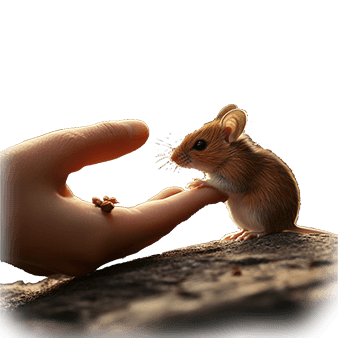
Interesting Fact—Mice Have a Great Memory
Did you know that mice have excellent spatial memory? They can remember the layout of a maze or their cage very well, which is why they are often used in scientific research involving memory and learning. This also means that they will quickly learn the fastest routes to their food or favorite hiding spots.

Final Thoughts—Are Mice Right for You?
Mice can be wonderful pets for the right person. They’re active, inquisitive, and relatively easy to care for if you provide them with a proper habitat, balanced diet, and plenty of enrichment. While they don’t require the same level of attention as a cat or dog, they do need daily care and handling to thrive.
If you’re considering getting pet mice, just remember that their small size doesn’t mean they come with small responsibilities. With the right care, mice can live up to 2-3 years, and those years can be filled with lots of fun moments watching their antics. Plus, there’s something special about gaining the trust of such a tiny, intelligent creature!
Further reading: “Pet Mice – Your Pet Mouse Happy Care Guide” (Amazon affiliate link) by Ben Little.
Affiliate Disclosure
This post may contain affiliate links, which means I earn from purchases made through links. Please see the privacy policy page for more details.







